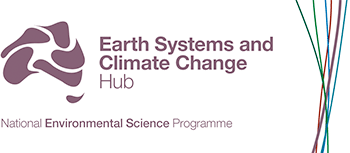09 October 2020
The financial services sector is increasingly acknowledging the impacts of climate change upon economies, society and the environment. In response to this, central banks and prudential regulators around the world are increasingly identifying the need for climate-related risk assessment, management and financial disclosure. In turn, key players (including banks, insurers, fund managers and rating agencies) are looking to access climate intelligence capabilities to facilitate this process.
But how does climate change affect Australia’s sovereign risk? And how can Australia build capability in understanding and preparing for the physical climate change risks occurring now and into the future?
In early September the Earth Systems and Climate Change Hub, in collaboration with Engineers Australia and the Actuaries Institute, hosted a virtual expo to conceptually scope out how a sovereign climate risk capability for Australia could function. The proposed establishment of a sovereign capability is a key strategic development for Australia and will be an important aspect in the future careers of financial services sector professionals and climate scientists.
The expo, entitled ‘Demonstrating a sovereign climate risk capability’, took place over two days with over 50 participants from Engineers Australia, the Actuaries Institute, the Investor Group on Climate Change, Moody’s, the Victorian Department of Environment, Water, Land and Planning and the Victorian Managed Insurance Authority. These professionals were supported by five expert climate change scientists from across the Earth Systems and Climate Change (ESCC) Hub, the ARC Centre of Excellence for Climate Extremes and the Monash Climate Change Communication Research Hub.
During the expo, participants undertook a team-based hypothetical exercise to map out a high-level risk assessment of the impact of a projected increase in intensity, frequency and duration of heat waves on the economy of the City of Melbourne for the time period 2030-2050.
The main focus of the exercise was to develop the methodology, identify data sources and then document the ‘workflow’ of the hypothetical climate risk assessment.
The risk assessments were conducted on different infrastructure and social ‘systems’ which included:
- The resilience of electricity supply grid under conditions of high demand for cooling during periods of extreme heat and point failure of critical infrastructure.
- The impact of future heatwaves on human health and well-being in the areas of domestic housing and large scale public events.
- The interaction between electricity and human health under heat extremes.
During the event, teams considered such questions as:
- What are the key climate physical risks, or climate hazards, to my system now and into the future?
- How is my system exposed to these climate risks?
- What climate, economic, and other information, data and tools are currently available to assist with assessing these risks?
- What are the resulting high-level and/or specific economic impacts?
Each team took a different approach in mapping out the workflow of their hypothetical high-level risk assessment for their particular system. Some teams took a broad, ‘whole of system’ approach to assessing risk, while other teams focussed in on a specific part of that system.
Many participants expressed surprise at the complexity of the task and were stretched to consider risks, impacts and sensitivities outside of their expertise. But all participants highlighted what they saw as the benefits of industry professionals and climate scientists collaborating to co-produce robust risk assessment methodologies which accurately incorporate climate change science data combined with economic, energy infrastructure and/or community health data and information. Both the industry professionals and climate experts gained a new understanding and appreciation of each other’s domain knowledge, as well as the process by which they could begin to consider jointly developing risk assessments of key physical climate change risks.
This event is the sixth and final ‘professional networking event’ held over the life of the ESCC Hub. Previous events have focussed on building networks and capability of young professionals across organisations such as NAB, KPMG, the ACT Government and the Actuaries Institute.
While this event had less of a focus on young professionals specifically, it still aimed to created shared understanding of the utility of climate change science and tools in assessing sovereign climate risks for Australia. It also served to build networks between Australia’s climate science experts and industry professionals across the financial services sector, given that these two networks will increasingly need to work together to develop solutions for managing Australia’s climate risks.
The event was coordinated and facilitated by Dr Nick Wood from the consultancy Climate Policy Research and member of the ESCC Hub’s Stakeholder Advisory Group. The Hub wishes to thank Dr Wood for driving this and previous ESCC Hub professional events, and for his on-going expert advice and enthusiasm in support of the Hub’s research and stakeholder engagement.
Read a blog on the event by participating CLEX climate scientist Charuni Pathmeswaran.
More information:
Sonia Bluhm, ESCC Hub Knowledge Broker
Geoff Gooley, ESCC Hub

